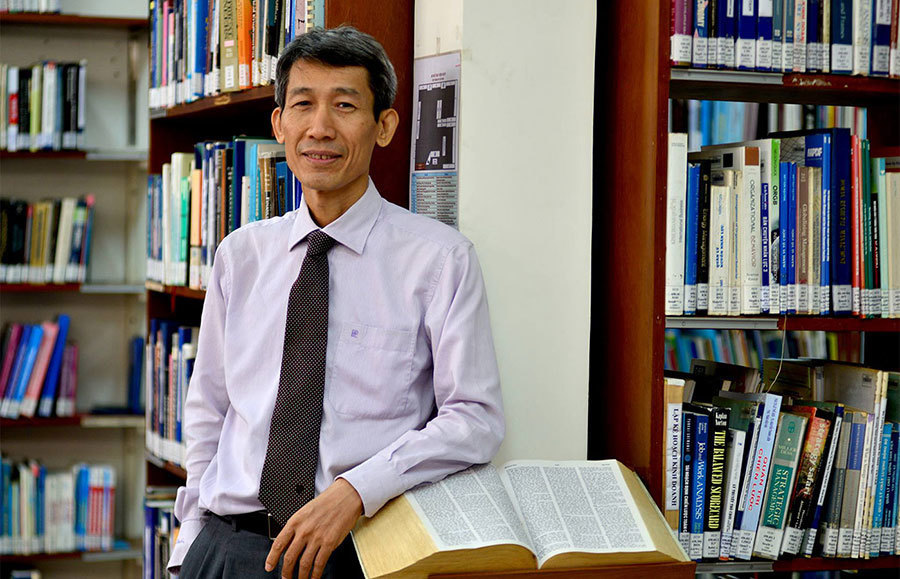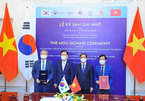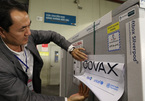
Associate Professor Dr Pham Duy Nghia - Director of the Public Policy Program at Fulbright University
An online seminar on expanding vaccine access sources and the responsibility of the State was organized by Fulbright University on June 19.
The speaker panel included Associate Professor Dr Pham Duy Nghia - Director of the Public Policy Program at Fulbright University; Dr. Nguyen Thu Anh - Country Director, Woolcock Institute of Medical Research in Vietnam; and Nguyen Xuan Thanh - Senior Lecturer, Fulbright School of Public Policy and Management.
VietNamNet introduces the legal aspects of the issues mentioned by the speakers at the seminar.
Vaccine and immunization law
Nghia said the Covid-19 pandemic with complicated developments is considered an ‘emergency’ and Vietnam should appreciate any type of vaccine. Vietnam has been carrying out large-scale vaccination for 75 million people later than other countries.
In many countries, vaccination centers have been set up and medical workers have been trained so that people can be vaccinated even at drugstores or mobile stations on highways.
The Ministry of Health has just announced a plan to organize a large-scale vaccination program for the entire population. Around 15,000 vaccination points, both fixed and mobile, will be set up. The immunization process has also been fixed. However, if implementing the plan, tens of thousands of people will need to be trained to serve the campaign.
Regarding the legal aspects of the vaccinations, Nghia pointed out that Vietnam still doesn’t have a law on vaccine and immunization. Meanwhile, China has a law with hundreds of provisions about this issue. Its 2019 law stipulates that citizens have the right and obligation to receive a vaccination.
This means that vaccinations not only aim to protect individuals, but the community as well. If individuals refuse vaccinations, they will have to accept the risks, such as restrictions in job access.
Meanwhile, in some other countries, such as Germany and the US, immunization is a citizens’ right and citizens must not be forced to have a vaccination. This explains why the proportion of vaccinated people in Russia is relatively low.
| Vietnam needs to master the technology on researching and developing vaccines. It is necessary to make methodical and sustainable investment in the labor force, infrastructure and associated supply chains, which can ensure fast vaccine production. |
Nghia said that in Vietnam, the government apparatus will have to do some things – explaining to people the benefits of immunization, buying vaccines, and organizing vaccinations. It also has to protect people’s benefits.
The State needs to do its best to prevent counterfeit and expired vaccines. If the medical procedure is wrong and unsafe, causing adverse consequences to people, they can claim compensation.
Long-term vaccine strategy
According to Anh, Covid-19 is not the only pandemic that humanity has had to face. There will be more pandemics and infection diseases in the future. Therefore, it is necessary to invest in a long-term vaccine strategy.
Vietnam needs to master the technology on researching and developing vaccines. It is necessary to make methodical and sustainable investment in the labor force, infrastructure and associated supply chains, which can ensure fast vaccine production.
Second, Vietnam needs to choose new technologies when deciding to invest in making vaccines. It should research and develop vaccines that prevent many diseases with just one dose.
And finally, Vietnam needs to have a system in charge of detecting newly emerging epidemics. The system not only needs to supervise infection cases, but also have the ability to sequence the genes of bacteria and viruses that cause diseases.
“Public investment is needed in this case. Since the vaccine development faces high risks, it needs huge investments. It would be better to encourage private enterprises to join vaccine development and give them the right to access public investment programs to develop vaccines,” she said.
“We also need to expand and improve the capacity of the vaccination system on a large scale with different epidemic scenarios,” she said.
Resources
Thanh emphasized the role of the central and local governments in funding, budgeting and forming an encouragement mechanism in order to have vaccine sources.
The basic principle is that the state budget funds the research and development of vaccine, vaccine purchases and immunization. This means that when a pandemic or epidemic breaks out, organizing vaccinations with low fee or fee exemption, is the responsibility of the State.
The establishment of a vaccine fund aims to show the consensus of the whole society. However, it is the State which must take the major responsibility.
To deal with a crisis, a contingency budget is needed. The central as well as local administration need to have financial resources ready to deal with crises, not only the Covid-19 epidemic, but also natural disasters or other problems.
At present, vaccine production is implemented by enterprises. The role of public investment here is funding private enterprises’ production efforts and accepting risks.
Laws and state governance need to change
Nghia stressed that Vietnam has a high population, and thus must not absolutely rely on foreign vaccines. Ensuring national autonomy and medical safety for people is a challenge. In that context, the legal system, as well as state governance, needs changes.
Regarding the encouragement of vaccine development, it is necessary to set up research centers managed and run by private investors. They can compete with each other in ideas and receive state support for the ideas. It is necessary to accept risks and failures when making public investments.
This means that laws need to change in a way so as to increase the freedom and accountability of business units. On the other hand, they need to promote state creativity in using new tools.
Vaccinations will be implemented not only to prevent Covid-19, but other diseases as well. Therefore, this is the permanent work and mission of the State. It is necessary to redefine the role of the State in supporting private innovations under strict commitments.
Dieu Thuy

Vietnam wants RoK to assist in COVID-19 recovery: foreign minister
Vietnamese foreign minister Bui Thanh Son has asked for the Republic of Korea (RoK)’s assistance in the COVID-19 fight to promote socio-economic recovery and restore normalcy for people-to-people exchanges.

Vietnam announces contribution of $500,000 to vaccine sharing scheme COVAX
Prime Minister Pham Minh Chinh has decided to add VND11.58 billion ($500,000) from the central budget reserve in 2021 to the Ministry of Health to make contributions to the COVAX (COVID-19 Vaccines Global Access) Facility.